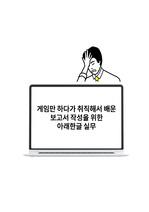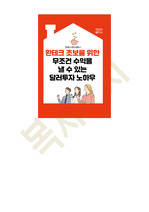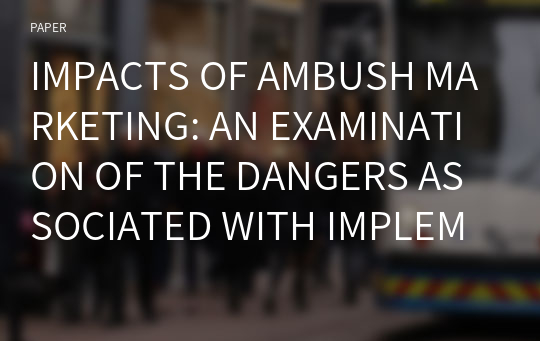IMPACTS OF AMBUSH MARKETING: AN EXAMINATION OF THE DANGERS ASSOCIATED WITH IMPLEMENTING AMBUSH MARKETING
* 본 문서는 배포용으로 복사 및 편집이 불가합니다.
서지정보
ㆍ발행기관 : 글로벌지식마케팅경영학회(GFMC)
ㆍ수록지정보 : GFMC Session1
ㆍ저자명 : Kihan Kim, Lira Yun, Yunjae Cheong
ㆍ저자명 : Kihan Kim, Lira Yun, Yunjae Cheong
영어 초록
The number of companies investing substantial marketing resources in sport sponsorship has been growing rapidly. This trend has resulted in more competition among the candidate companies to acquire official sponsorship rights. Not surprisingly, the recent increase in the popularity of sport sponsorship has been accompanied by increased attempts in ambush marketing – a marketing strategy wherein the companies associate themselves with, and therefore capitalize on, a particular sporting event without paying any sponsorship fee (Hoek & Gendall, 2002). The purpose of this study is to examine how such ambush-marketing activities can damage the evaluation of the company when they are noticed by consumers. This study further examines whether the prior reputation of the company influences the relationships between ambush marketing and company evaluations. Sponsorship and Ambush Marketing Prior research in sport marketing (Meenaghan, 1983; Sullivan & Mulphy, 1998) suggests that the sponsorship of sporting events offers sponsors opportunities to develop favorable brand images by creating goodwill perceptions (Hoek, Gendall, and West, 1990; Marshall, 1992). As noted above, companies unable to fund sponsorship rights have attempted to achieve the same benefits by engaging in promotional efforts associated with the event as if they were true sponsors (McKelvey, 1994). It is, however, only when consumers are unaware of the fact that the companies are, in fact, ambush marketers that these companies can expect positive goodwill perceptions from their ambush marketing practices. This is because ambush marketing has been perceived to be an unethical business practice. Payne (1998) indicated that ambush marketing not only harms the integrity and viability of global sport events, but also infringes on official sponsors’ rights; similarly, O’Sullivan and Murphy (1998) claim that ambush marketing is just as bad as stealing. Thus, once consumers become aware of the fact that a company is implementing an ambush marketing practice, rather than being a true sponsor, those consumers will be disappointed, and negative evaluations of the company are most likely to result. Based on the discussion above, the following hypotheses are proposed: H1: When an ambush-marketing attempt is not noticed, subjects exposed to an ambush- marketing practice will have more favorable evaluations of the company than the evaluations of the subjects not exposed to an ambush- marketing practice. H2: When an ambush-marketing attempt is noticed, subjects exposed to an ambushmarketing practice will have more unfavorable evaluations of the company than the evaluations of the subjects not exposed to an ambush- marketing attempt. Expectation and Evidences We further predict that the risks associated with ambush marketing are more profound for companies with high levels of a good reputation, rather than low. Such reasoning is based on theories of the interaction between expectations and evidences. In this study, expectation refers to the belief probabilities of attribute occurrence (Olson and Dover, 1976); prior research suggests that consumers may form expectations about a company based on the corporate reputation—the sum of the values that stakeholders attribute to a company, based on their perceptions of the company’s image and behavior over time (Dalton & Croft, 2003). Corporate reputation comprises three dimensions (Graham and Helen 2005) including public responsibility (e.g., ―Are they socially responsible?‖), consumer fairness (e.g., ―Do they treat the consumers with some respect?‖), and leadership and success (e.g., ―Are they successful at what they do?‖). Thus, having established a high degree of good reputation indicates that consumers can expect more positive perceptions on each of the three dimensions of corporate reputation described above. According to research in consumer satisfaction, it is the direction and the degree of disconfirmation resulting from the incongruity between the prior expectation and the evidences that determine the product evaluation and satisfaction (Oliver 1980). In particular, Oliver (1980), and Tse and Wilton (1988) proposed that expectations are thought to create a frame of reference about which one makes a comparative judgment, whereby evidences higher (or lower) than the expectations are thought to be a positive (or negative) disconfirmation. Mandler (1982) further suggests that increasing the degree of discrepancy between a schema-triggered expectation and new information results in heightened arousal and cognitive processing, which leads to a more polarized evaluation of products and services. Therefore, in a sponsorship context, a seemingly true sponsorship activity (i.e., an unnoticed ambush attempt) is likely to lead to a positive disconfirmation of the consumers’ expectations about a company, and the degree of disconfirmation will be greater when the company’s prior degree of good reputation is low, rather than high. On the other hand, when noticed by consumers, an ambush-marketing attempt is likely to lead to negative disconfirmation of prior expectations about a company, and the degree of disconfirmation will be greater when the company’s prior degree of good reputation is high, rather than low. Based on the discussion, the following hypotheses are posed: H3: When an ambush-marketing attempt is not noticed, subjects exposed to the ambush-marketing practice will perceive a positive disconfirmation of expectations, and the degree of disconfirmation will be greater when the company is disreputable than when it is reputable. H4: When an ambush-marketing attempt is noticed, subjects exposed to the ambush-marketing practice will perceive a negative disconfirmation of expectations, and the degree of disconfirmation will be greater when the company is reputable than when it is disreputable. Disconfirmation and Evaluation Satisfaction literature (Oliver 1980) also suggests a high degree of consistency between the degree of disconfirmation and satisfaction, as well as the traditional criteria of attitudes. Oliver (1980), for example, showed positive relationships between the degree of disconfirmation and the amount of attitude change. Also, given the earlier discussion that the degree of disconfirmation is proportional to the extremity of the attitude, the following hypotheses are posed: H5: When an ambush-marketing attempt is not noticed, subjects exposed to the ambush-marketing practice will have a more favorable attitude toward the company, and the degree of enhancement in company evaluation will be greater when the company is disreputable than when it is reputable. H6: When an ambush-marketing attempt is noticed, subjects exposed to the ambush-marketing practice will have a more negative attitude toward the company, and the degree of reduction in company evaluation will be greater when the company is reputable than when it is disreputable. Method In order to examine the proposed hypotheses, a 2-by-2 by-2 full-factorial experiment will be conducted. A convenient sample of college students will be used for theory-testing purposes. There are three independent variables. Prior reputation (high vs. low reputation), and whether the ambush-marketing attempt is noticed or not (noticed vs. unnoticed) are the between-subject factors, whereas the measurement sequence (before vs. after stimulus exposures) is the within-subject factor. Corporate reputation will be manipulated by exposing subjects to either high- or low-reputation company profiles. Subjects will then be asked to rate the dependent variables the first time. Then, subjects from each company reputation condition will be exposed to hypothetical newspaper articles describing the company as either a true sponsor or an ambush marketer. After being exposed to the stimulus newspaper articles, the subjects will be asked to rate the key dependent variables the second time. The primary dependent variables include perceived corporate reputation, and attitude toward the company. Data collected from the experiment will be analyzed by three-way ANOVA.참고 자료
없음"GFMC Session1"의 다른 논문
 FAST AND SLOW FASHION BRANDS IN DEVELOPING SUSTAINABLE ..6페이지
FAST AND SLOW FASHION BRANDS IN DEVELOPING SUSTAINABLE ..6페이지 “WHAT IF A CELEBRITY AND A BRAND CO-CREATE A NEW COLLEC..7페이지
“WHAT IF A CELEBRITY AND A BRAND CO-CREATE A NEW COLLEC..7페이지 THE INSTAGRAM’S STRATEGY IN ENGAGING THE CUSTOMER’S LOY..3페이지
THE INSTAGRAM’S STRATEGY IN ENGAGING THE CUSTOMER’S LOY..3페이지 THE PARTICULARITIES OF NEW PRODUCT DEVELOPMENT IN THE T..5페이지
THE PARTICULARITIES OF NEW PRODUCT DEVELOPMENT IN THE T..5페이지 THE LONE CHOCOLATE BAR: THE INFLUENCE OF PERCEIVED SCAR..6페이지
THE LONE CHOCOLATE BAR: THE INFLUENCE OF PERCEIVED SCAR..6페이지 ADS AS WORKS OF ART: MEASURING ADVERTISING IMMERSION3페이지
ADS AS WORKS OF ART: MEASURING ADVERTISING IMMERSION3페이지 ECONOMIES OF SMALL: NICHE STRATEGIES AND SUCCESS FACTOR..8페이지
ECONOMIES OF SMALL: NICHE STRATEGIES AND SUCCESS FACTOR..8페이지 THE INFLUENCE OF ONLINE CUSTOMER REVIEWS ON RETAILERS' ..6페이지
THE INFLUENCE OF ONLINE CUSTOMER REVIEWS ON RETAILERS' ..6페이지 IS THE ARTIFICATION PROCESS PERCEIVED BY FINAL CONSUMER..6페이지
IS THE ARTIFICATION PROCESS PERCEIVED BY FINAL CONSUMER..6페이지 THE ODD EVEN PRICE PARADOX IN THE FASHION LUXURY SECTOR6페이지
THE ODD EVEN PRICE PARADOX IN THE FASHION LUXURY SECTOR6페이지

























